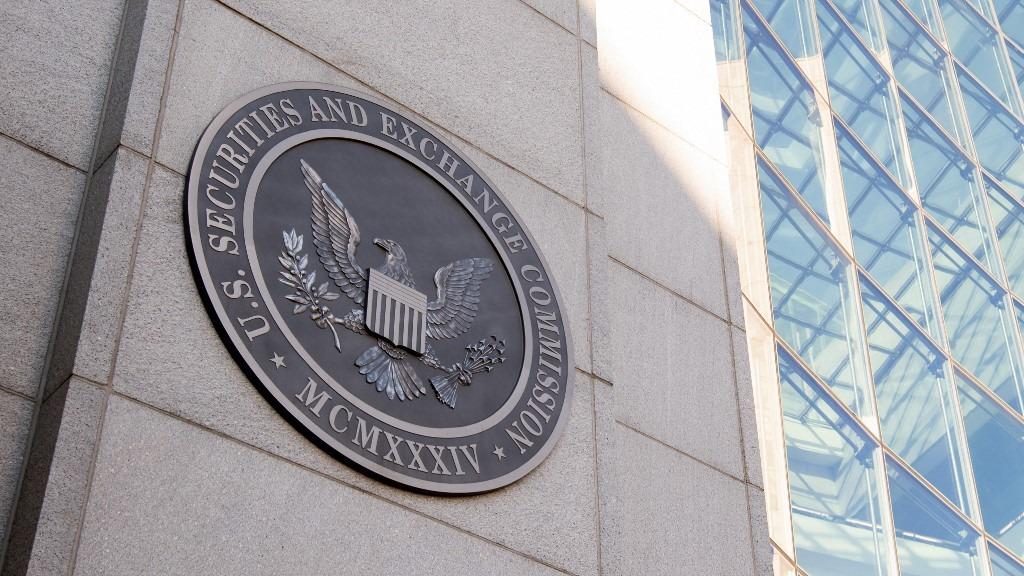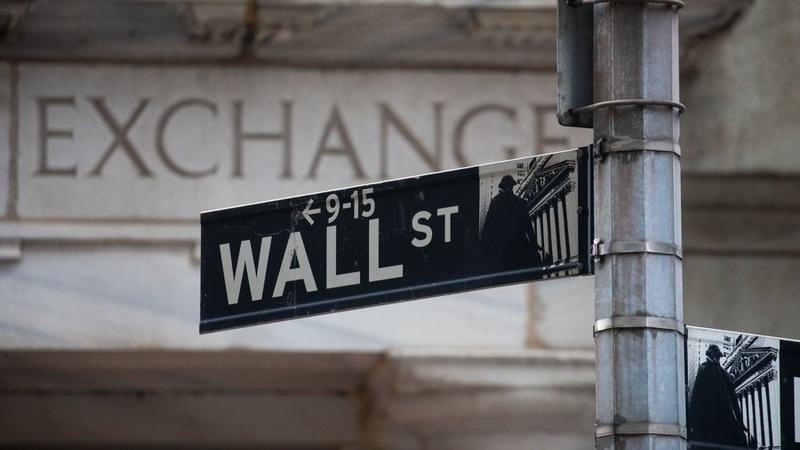 This file photo dated Jan 28, 2021 shows the headquarters of the US Securities and Exchange Commission (SEC) in Washington, DC. (PHOTO / AFP)
This file photo dated Jan 28, 2021 shows the headquarters of the US Securities and Exchange Commission (SEC) in Washington, DC. (PHOTO / AFP)
The US Securities and Exchange Commission has removed some of its most ambitious greenhouse gas emission disclosure requirements from corporate climate risk rules it is preparing to adopt, people familiar with the matter said on Thursday.
The SEC has dropped a requirement for US-listed companies to disclose so-called Scope 3 emissions, which was included in its original draft of the rules published in March 2022, the sources said.
Scaling back these rules would be a blow for President Joe Biden's agenda to address climate change threats through federal agencies. Biden, a Democrat, has been under pressure from many lawmakers in his party to do more and move at a faster pace.
The SEC's original draft proposed mandatory disclosure of emissions for which companies are more directly responsible, dubbed Scope 1 and Scope 2. Some lobbyists pushed the SEC to require such disclosures only if they are material to a company's business. Reuters could not ascertain whether the latest draft changed the Scope 1 and 2 requirement threshold
Scope 3 emissions account for greenhouse gases, such as carbon dioxide, released in the atmosphere from a company's supply chain and the consumption of its products by customers. For most businesses, Scope 3 emissions represent more than 70 percent of their carbon footprint, according to consulting firm Deloitte.
If adopted, the new draft would represent a win for many corporations and their trade groups that lobbied to water down the rules. But it would also deviate from European Union rules which make Scope 3 disclosures mandatory for large companies starting this year and potentially complicate compliance for some global corporations.
The SEC's original draft proposed mandatory disclosure of emissions for which companies are more directly responsible, dubbed Scope 1 and Scope 2. Some lobbyists pushed the SEC to require such disclosures only if they are material to a company's business. Reuters could not ascertain whether the latest draft changed the Scope 1 and 2 requirement threshold.
ALSO READ: SEC collects Wall Street's private messages as probe escalates
Once the SEC settles on a final draft, it must be put to a vote among its five commissioners. The timing of the vote is not clear, and it is possible that the draft is revised before then.
The sources requested anonymity because the matter is confidential. An SEC spokesperson said the agency considered adjustments to its draft rules based on public feedback, but declined to comment on the contents of the latest draft of the climate risk rules.
"The Commission moves to adopt rules only when the staff and the Commission think they are ready to be considered," the SEC spokesperson said.
The SEC's March 2022 proposal would require publicly listed companies to disclose a range of climate-related risks that could affect their business. It argued that greenhouse gas emission disclosures are important for investors' due diligence. Companies have pushed back, arguing the data is hard to produce and legally contentious.
 A Wall Street sign is seen in front of the New York Stock Exchange in New York, the United States, on March 13, 2023. (PHOTO / XINHUA)
A Wall Street sign is seen in front of the New York Stock Exchange in New York, the United States, on March 13, 2023. (PHOTO / XINHUA)
Reuters reported in November that the SEC told lobbyists and corporate executives it was considering watering down the rules.
Some SEC officials worry that mandating disclosures across the board could make the rule more vulnerable to legal challenges which, if successful, could tie the agency's hands when writing other rules, Reuters reported at the time.
ALSO READ: US SEC says no to new crypto rules; Coinbase to challenge
Some SEC officials worry that mandating disclosures across the board could make the rule more vulnerable to legal challenges which, if successful, could tie the agency's hands when writing other rules, Reuters reported at the time
Those concerns were fueled by a US Supreme Court decision in 2022 curbing the Environmental Protection Agency's power to regulate greenhouse gas emissions. This raised doubts over whether SEC rules would survive a court challenge.
Some corporate groups and Republican lawmakers also argued that tackling climate change-related issues exceeds the SEC's authority, and that the rules would be unduly burdensome for companies and cloud truly material information for investors.
Litigation risk
SEC Chair Gary Gensler told an event held by the US Chamber of Commerce in October that he hoped the emissions disclosure rules, which received some 16,000 public comments, will survive any legal challenges once they are finalized and adopted.
"I would expect that whatever the rule says, unless they really water it down tremendously, there will be litigation," Columbia Law School Professor John Coffee, a securities regulations expert, said in an interview.
Last year, California adopted a law that will require companies active in the state to disclose Scope 3 emissions as early as 2027. Corporate lobbyists said companies would still be reluctant to disclose Scope 3 emissions in SEC filings, even if they produced them for California, because including such information in securities filings gives grounds for more lawsuits from investors.
READ MORE: Nasdaq, NYSE sue SEC over plan to overhaul data feeds
Some voluntary initiatives such as the International Sustainability Standards Board already specify that it is best practice to disclose Scope 3 emissions.
"There is no question Scope 3 reporting is important, because otherwise you risk presenting a somewhat misleading picture of the company's greenhouse gas emissions," said Ben Schiffrin, director of securities policy at Washington, DC-based consumer and investor advocacy group Better Markets.


